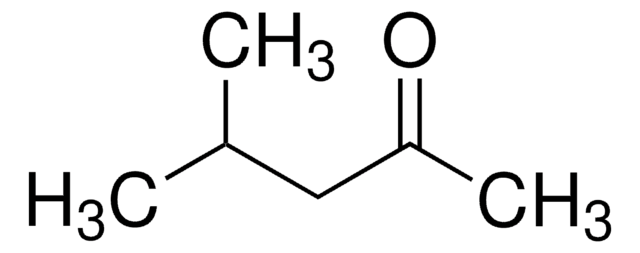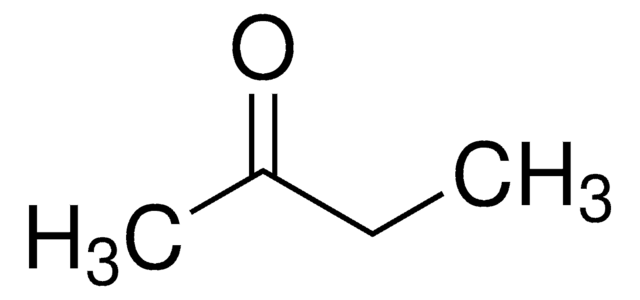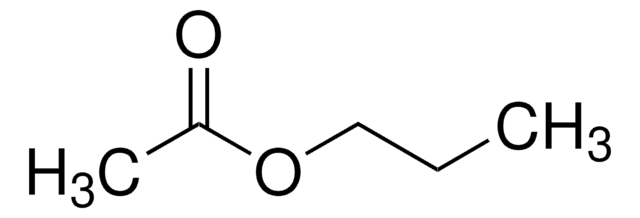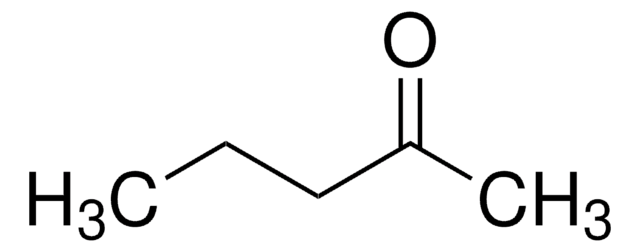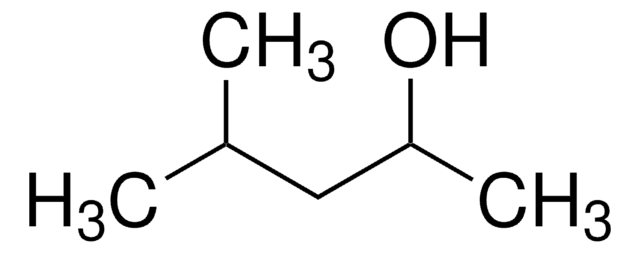293261
4-Methyl-2-pentanone
suitable for HPLC, ≥99.5%
Synonym(s):
Isobutyl methyl ketone, Isopropylacetone, MIBK, Methyl isobutyl ketone
About This Item
vapor density
3.5 (vs air)
Quality Level
vapor pressure
15.7 mmHg
assay
≥99.5%
form
liquid
autoignition temp.
840 °F
expl. lim.
1.2-8 %, 93 °F
technique(s)
HPLC: suitable
impurities
<0.050% water
evapn. residue
<0.001%
refractive index
n20/D 1.395 (lit.)
bp
117-118 °C
mp
−80 °C (lit.)
density
0.801 g/mL at 25 °C (lit.)
λ
H2O reference
UV absorption
λ: 335 nm Amax: 1.00
λ: 340 nm Amax: 0.50
λ: 360 nm Amax: 0.15
λ: 380 nm Amax: 0.02
λ: 400 nm Amax: 0.01
application(s)
food and beverages
SMILES string
CC(C)CC(C)=O
InChI
1S/C6H12O/c1-5(2)4-6(3)7/h5H,4H2,1-3H3
InChI key
NTIZESTWPVYFNL-UHFFFAOYSA-N
Looking for similar products? Visit Product Comparison Guide
Related Categories
General description
Application
Featured as a solvent in the extraction of cellulose-derived levulinic acid from municipal wastewater treatment plant (WWTP) sludge prior to HPLC analysis.
signalword
Danger
hcodes
Hazard Classifications
Acute Tox. 4 Inhalation - Carc. 2 Inhalation - Eye Irrit. 2 - Flam. Liq. 2 - STOT SE 3
target_organs
Central nervous system
supp_hazards
wgk_germany
WGK 1
flash_point_f
57.2 °F
flash_point_c
14 °C
Certificates of Analysis (COA)
Search for Certificates of Analysis (COA) by entering the products Lot/Batch Number. Lot and Batch Numbers can be found on a product’s label following the words ‘Lot’ or ‘Batch’.
Already Own This Product?
Find documentation for the products that you have recently purchased in the Document Library.
Customers Also Viewed
Our team of scientists has experience in all areas of research including Life Science, Material Science, Chemical Synthesis, Chromatography, Analytical and many others.
Contact Technical Service


